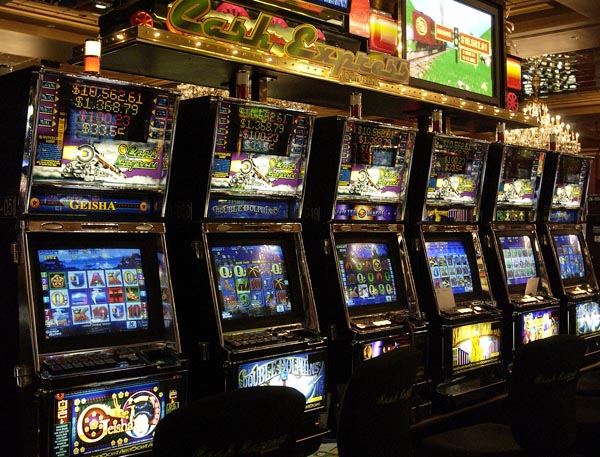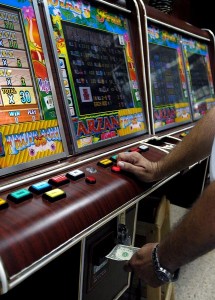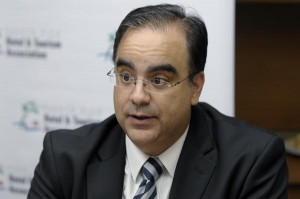Puerto Rico Tourism Co. revisiting casino rules


Casino revenue usually totals about $315 million. This fiscal year, that number closed at $296 million. (Credit: © Mauricio Pascual)
The Puerto Rico Tourism Company’s Gambling Division is revisiting casino regulations in response to hoteliers who have spent the better part of the last year lobbying for amendments to temper the rules to current economic conditions and provide more flexibility they say would prevent a wave of casino closings.
Changes to the 500-page regulatory document containing clauses dating to 1948 are needed “urgently” to spare an industry that is a source of funding for the University of Puerto Rico and the Tourism Co. itself, as well as avoid further employee layoffs, hoteliers have said.
In an exclusive interview with this media outlet, Luis Daniel Muñiz, executive deputy director of the Tourism Co., said a team of employees from the agency’s gambling division is already “looking into the matter, after receiving comments following a meeting last week with members of the Puerto Rico Hotel and Tourism Association.”
Among other issues, hoteliers are asking the agency to lift the requirement of having to staff at least three gaming tables when opening the casino and reducing the number of days required to obtain authorization from the Tourism Company to celebrate events or shows at the casino facilities, which would attract more players.
“We’re asking for the changes related to the tables, to reduce the number from three to one, so that we can move our resources around to where we need them. Regulations say we have to staff three tables when casinos open at noon, but the truth is that at that time of the day, there isn’t much table activity,” said Ismael Vega, president of the PRHTA.
“Several labor unions have opposed that because they think we’re going to fire people, but it’s the total opposite. If I don’t have flexibility, I’m going to start closing the casino, so, which is worse?” he said, noting that on Saturday, the Radisson Ambassador Plaza Hotel & Casino, for which he is the chief financial officer, scaled back its casino operating hours and laid off 30 people.
“Things are bad and we have to see where we can make things more flexible so this boat can continue to sail. I don’t understand the opposition because they’re going to force us to close, or open the casino later in the day,” he said.
Meanwhile, Muñiz noted that during last week’s meeting — the first since the new administration took over in January — the agency was able to get a better grasp on the issues that need attention first, “because we’re going to expedite addressing any issue that affects this industry.”
“However, when it comes to the number of tables, any changes that we authorize must come with a commitment of preserving jobs, even if shifts change,” Muñiz said, noting a follow-up meeting is on the agenda to continue discussions.
One of the oldest in the books
“The Gambling Law is possibly one of the oldest in Puerto Rico and the Caribbean. But the fact that it’s old doesn’t mean that it’s not good. It’s based on principles that have made Puerto Rico’s casino industry one of the most trustworthy,” Muñiz said.

Illegal gambling halls are taking a bite out of the highly regulated casino industry, execs say. (Credit: © Mauricio Pascual)
The law was last amended in 2007 and several other attempts at revising it were made during the Fortuño administration, when the PRHTA submitted a draft containing more proposed changes.
“Not all of those proposals were approved, and many were left on the table waiting to see what would happen during the elections,” Muñiz conceded.
It wasn’t until March that the agency began addressing Puerto Rico’s gambling scene, focusing on the issue of legalizing adult entertainment slots, which have been quickly proliferating in restaurants and makeshift gambling halls islandwide in recent years.
By law, casinos are only authorized to operate inside hotels. Vega said off-premise gambling halls are putting negative pressure on established facilities and are partly responsible for the 6 percent drop in year-over-year casino revenue collections.
“Casino revenue usually totals about $315 million. This fiscal year, that number closed at $296 million,” he said.
Aware of the pressing problem, Tourism has asked the Justice Department to revive an interagency task force formed in 2010 that also includes the Treasury Department and the Financial Institutions Commissioner to meet again on the issue of off-premise gambling.
There are an estimated 25,000 unregistered adult entertainment video slots islandwide, which are not currently subject to oversight by regulatory agencies.
















Back in 1996 I was told that it was “impossible” to approve new casino rules during an election year. Nevertheless, I filed just that. To his credit, then legislative assistant (and current Yauco Mayor) Abel Nazario, helped us broker the bill’s content with religious leaders, hoteliers, then Puerto Rico Tourism Director Luis Fortuño and labor union officials and the bill became law, to the chagrin of the pessimists, months before a general election. However, I agree that casino legislation has to provide flexibility and must be revisited regularly if we want to put the brakes on the current situation in which Puerto Rico has ceased to be competitive in this area.